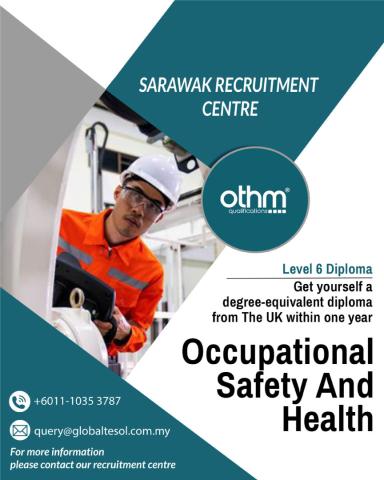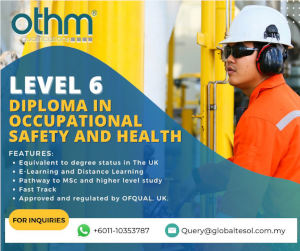Keep in mind that when you are teaching overseas, there are seldom set rules that apply in every given situation. Rules vary from country to country, and each school is different. As a result, so will each situation vary from one job to another, and the following questions and answers may or may not apply to you.
• What age group will I have to teach?
In schools overseas, students of all ages study English. Children as young as three go to English kindergartens, while senior citizens study English as a hobby. You might be teaching elementary school students, junior or senior high students, businessmen, housewives, other teachers, or people who need English in order to improve their chances of being promoted or to increase their ability to be hired. Most schools do focus on one or two age groups, so if you have a very strong preference to one age group, make sure the school that you apply to teaches that age group. Whatever your preferences are, teaching each age group is covered in the standard sixty-hour course. We also have excellent specialization's that focus on teaching children and adults.
• What is the average class size that I may encounter?
This depends entirely on what the school teaches and where you are teaching it. In some parts of China, you might be teaching class sizes of forty students. In other parts of China, you might be teaching three or four. For class sizes smaller than this or for any tutoring jobs you might have, we suggest registering for our tutoring specialization. Most countries have a limit of eight to twelve students, which we feel is the ideal number to have in a classroom. Be careful though! Those high paying college and university classes might have class sizes of over two hundred.
• What textbook will I have to use?
This is one of the first questions to ask a potential employer. Most schools will have an established curriculum already in place for you, but they will allow you to be creative in your teaching methods, so bring along our 721-page Resource Guide. You want to avoid schools that do not have any textbooks in place, and you also want to make sure that the textbook series you do use is from an English speaking country. We have a list of preferred textbooks to use in Chapter twenty-one of the resource guide.
• What resources are available to me?
Again, this depends on the school you are going to. Most schools have access to a TV and a VCR, a CD player, a tape player, and at least some art supplies. Make sure you pay attention to Chapter 8 and 9 in the Resource Guide to see what you will need to convert or adapt to play in your classroom.
• What is the dress code for foreign English teachers?
Most schools do not have a strict dress-code, but be aware that teachers are required to look clean, neat and presentable at all times while teaching. If you are teaching children, however, make sure you are wearing clothes that are appropriate for teaching children. Ties on male teachers are a definite no-no when teaching younger children.
• What are some of the most common classroom management problems?
Most students overseas are much better behaved than students in North America, but classroom management is still sometimes a concern. The best way to avoid all classroom management issues is being prepared. We cover low-level and high-level management techniques when teaching children. You will occasionally have students who are extremely tired in your class, as well as students who clearly do not understand what you want them to do. Don't worry! We cover all this in class.
• Will I have to teach a specific age group?
No! Not if you don't want to. Each school specializes in a particular age group; so if there is an age group that you definitely do not want to teach, simply do not apply for that school.
• How many classes a day will I have to teach?
Again, this depends on the country. Some countries like Mexico or China ask you to teach three to four classes a day, while South Korea expects six classes. Most countries require at least five hours a day for teaching. We teach you in the class how to define a teaching 'hour' and how to negotiate overtime.
• What kind of preparatory work is involved in teaching?
This depends on how much practice you have had in teaching before. Beginner teachers might need 20-30 minutes before each class to plan the lesson. The more experience you have, the less time you need to plan, but remember planning is always important. We spend a great deal of time dealing with lesson plans.
• Will I be observed while teaching?
Some teachers are, and some teachers aren't. Some schools will give you bonuses depending on performances and some teachers will never have their directors in their classrooms. You might want to ask if this is a practice in your school.
• What kind of report cards do the schools use?
Again, this depends on the school. Some schools use them, some schools don't. Regardless of this, you should always keep anecdotal notes about your students. Remember to keep your comments as positive as possible.
• Will I have to team-teach?
Yet again, this depends on the school. When teaching kindergarten, some schools have a native English teacher teach with a foreign English teacher, and if you are teaching in an actual junior or senior high school you will be teaching with another teacher. Usually, however, your English classroom is your classroom exclusively.
• Will there be other foreign teachers in my school?
Hopefully there will be! It is extremely difficult to start out teaching anywhere, and it is even more difficult if you are the first or the only English teacher. One of the questions you should be asking your director is if you can have the e-mail of teachers already working in the school. If the answer is no, it's usually a good sign that he either knows the teachers are not going to say anything positive or that you will be working alone. For your first time abroad, maybe that isn't such a great idea.
• How much money will I make in American dollars?
This depends entirely on where you are living. Rich countries can pay you more than poor countries and countries with a lot of tourists don't pay as much as countries off the beaten track. What you are looking for, though, is a country that pays well when compared to the cost of living. Germany, for example, pays several thousand dollars a month, but the cost of living also happens to be several thousand dollars a month. And don't forget that in most cases you are not exempt from local income tax. Jobs range between $200 dollars and $4000 dollars a month. Most countries, however, pay their English teachers enough to live well. Most countries in Asia, the Middle East and Eastern Europe provide excellent saving opportunities. Be warned, however, some cities like Paris and Rio cost more money a month to live in than it does to work in.
• Will I be paid in Canadian dollars or in the local currency?
Almost without exception, you will always be paid in local currency. The sums quoted to you in the job descriptions are usually a rough estimate. Remember to send your money home over the year rather than save it up as one lump shipment, as this will cost you if the exchange rate is not in your favour. Also, some countries put a limit (for example, one month's salary) on how much you can legally send home. Sending the money home in 12 installments will also protect you if the currency exchange takes a sudden nosedive.
• How often and in what way will I be paid?
Most schools pay their teachers once a month, usually on a given day. Schools will either pay you with an envelope of cash on payday, directly deposit it into your account, or issue you a cheque. Regardless of by what method, your school should also help you with setting up a bank account and teach you how to use a bank machine.
• How many holidays will I be able to have?
Most countries have one national holiday off a month, which your school will observe. Your contract should also state one to five weeks off, depending on the country. Both you and the school should agree on when this time can be taken off, but remember, if it is not in the contract and you do not ask for it to be put in the contract before you sign it, you will not be getting any time off at all.
• Is airfare included?
Again, sometimes. If it is in the job description that it is included, it is included. South Korea and China always include airfare. Other countries will pay for return airfare only after the contract is completed. Do some checking around for the cheapest airfares.
• Where will you send me?
We don't send you anywhere. You apply for the jobs just like the regular application process through your resume and introduction letter. No one should find a job for you, nor should you trust anyone to know what is best for you. This is an adventure, but it is also a year of your life. If that is not worth a week or so of research, I don't know what is.
• How will I know if it's a good job?
By doing your research. We go through every question that you should be asking your future employer, as well as teachers who are already working for your school. If the teachers working there are happy, then chances are you will be happy as well.
• What if I have to go home suddenly due to an emergency?
You must have a multiple reentry visa on your passport. You can get this through your country's immigration office. You can't get this at the airport, so get it as soon as you arrive. If you do have to return, make sure your director knows when to expect you back. Most contracts have a clause permitting you to go home in case of emergencies.
• What if I hate my job?
Hopefully, you will have done your research and this question will never come up. If it does, however, and you want to quit, make sure you are familiar with what your contract states about quitting. Most countries require that you give X number of days notice before you can start working elsewhere. Others are more prohibitive than that. South Korea, for example, requires that you leave the country for the duration of your valid work visa if you quit, getting fired means you can work the next day for another school.
• How do I send money home?
Banks and post offices will wire money home for a fee. We discuss other methods in the class.
• How do I do it anyway?
We really don't suggest that you do. But we do show you some ways not to get caught. Remember, however, that your full-paying job always comes first.
• What if I get caught?
You will be deported and fined. Please don't get caught.
• What do I do if I get caught doing anything illegal?
Depends on what you are caught doing. Minor offenses will get you deported and fined. Major offenses depend on where you are. In some countries you will be tried as a citizen and sent to local jails. In other countries, you will be executed. All the Canadian Consulate in your country can do is give you a list of lawyers that speak English in your country. Don't do drugs. We cover in our manual several other things to be wary of.
• How long does an average work visa last?
Normally one year. Each country has different visa-granting rules and regulations, and these rules and regulations change regularly. We encourage you to contact the consulate or embassy of the country in question prior to departure for exact details. Be sure to find the contact information of your home countries (Canada, America, etc.) embassy in the country where you are going.
• When my contract ends, how do I find a new English teaching job in another
foreign country?
E-mail or call the Global TESOL College once you graduate from our program. You automatically become part of the Global TESOL family Alumni-for a lifetime of job assistance and we would love to help you with any TESOL certification, study or work related issues.
• What should I pack?
Besides casual wear and clothes to teach in, it is important to take with you things that you cannot live without. If there is a particular brand of tea you love or pictures of your family, fine, but be very careful not to pack anything that would break your heart to lose.
• Is there anything I shouldn't take with me?
To begin with, anything illegal in the country you are going to should not be taken with you. This obviously includes drugs, but may also include men's magazines such as Maxim. Try not to take with you denim jeans for a hot summer; they are very uncomfortable to wear. Things that might also be on the prohibited list are insulin needles, birth control pills, and in the Middle East, movies and DVD's.
• What is the housing situation like?
Again, this depends on where you are going to go. If the school offers you accommodation, it can range from a very small hole in the wall to a very large house. It totally depends. So make sure this is one of the questions that you research. If at all possible, try to talk to people who are living in the housing that you will have. Remember where ever you are, apartments will never be as large as they are in North America and rent is sometimes very expensive if it's not subsidized by the school.
• The job description says 'furnished accommodation'. What's usually included in that?
Again, this depends on the school. But you want to make sure what is included in the house is clearly spelled out in the contract. This allows you to accurately access how furnished the apartment is, but it can also act as a checkout list for your landlord so you know what was provided and what you have acquired in your stay.
• Will I be able to find any (fill in your favorite item) overseas?
I would answer this with a hesitant yes. Most developed countries do have a foreign-type market store that is filled with imported Coca-Cola, cream of mushroom soup and all the Kraft dinner you could choke down. These types of stores are almost always located in major cities, and almost always cost up to three times as much as the same items back in your home country. So use them when you absolutely must have (blank), but try to use local products as much as possible. A word of warning, however, I once saw a Kool-aide package on sale on the shelf that was past the expiration date. I hadn't thought that was possible. Make sure to check all the best before dates before you buy it, and be very wary of foreign food on sale.
• Are there any English television programs or stations overseas?
Although you should be out of the house actually doing stuff rather than staying inside all day watching television, there will be the occasional cold, rainy day. Most industrialized countries will have the occasional English television program on its regular channels, but make sure your television is sub-line capable in order to listen to it in English. Other countries have English satellite television or cable packages that have newer shows (read last season's) available at a premium.
• Are English movies, magazines, and books available overseas?
Again, most countries will have English movies playing in their theatres, but the ticket price is usually twice what it costs in North America. Make sure you can read the words for "subtitled" or "dubbed" to make sure you can understand what the actors are saying. English newspapers published in your areas should have what is playing as well as the times. English magazines and books are usually available at big booksellers again in the major centers. You can either learn the words for "Do you have any English books here?" or look sufficiently stunned enough for a kind clerk to show you where they are. You won't be the first person they would have had to help.
• What am I able to do with my free time?
Basically anything you want, within reason. With very few teaching hours in a week, you might find that you have more time on your hands than you are used to. You might pick up a hobby or make local friends. There are hundreds of places to explore, and thousands of shops to poke around in. You might even want to *cough* take a private job or two. More on this in the work environment.
• How much money should I take with me for the first month abroad?
Enough to last at least a month, if not more. Ask the other English teachers working in your potential school how much money that will be. If you are traveling under a tourist visa, or if your school has only provided you with a one-way ticket, that you have enough money to get you home if something goes wrong or if there is an emergency. It is important to have that emergency fund available to you so that you will never feel trapped in your country.
• Is the water drinkable?
Sometimes. But unless you know for sure, no. There are some countries that require the water to be boiled, sometimes it needs to be filtered, sometimes filtered and boiled, and in some countries, nothing you will ever do to the water will ever make it portable. Make sure you know for sure whether the water is good before you drink it. Most countries have drinking water at a very low cost, and watch out for ice outside your home.
• What options are open to vegetarians and/or vegans?
Only eat food that you have prepared unless you can see how it has been prepared. Learning the words "Is there any meat in this?" might help, but if the country you are in considers only beef to be meat, you will get a false positive and have a meal served to you that is full of ham, chicken, or fish. Vegans need to be especially careful, as extracts of meat are often used to flavour food that is otherwise meat-free. It is possible to be both vegetarian and vegan if you are especially vigilant. Whether or not you eat meat, make sure your diet is balanced. Teaching overseas is initially stressful, and getting sick only makes it worse.
• Am I able to take my family with me?
Yes, you can. But make sure you tell your employer that you are taking your spouse and/or children with you. This will ensure that you have suitable housing for a family rather than an individual.
• Is it possible for a friend and I to get jobs teaching in the same school or town?
Yes! In fact, some schools would much rather hire a pair than a single teacher. The cost for hiring, as well as living expenses, are cut in half, as well as the fact that if two people are traveling together they experience a less severe case of homesickness. If you are trying to live in the same town, make sure both of you have done your homework for each of the schools.
• Will I be able to take my pets with me?
This question is again a very qualified yes. Each country has a different set of rules for importing animals, so make sure you are familiar with each country's requirements. Check here for regulations and restrictions. Also remember that your house will be much smaller than what you are used to now, so large pets may not be as welcome. Again, make sure your employer knows what you are planning to bring with you so that they can find suitable accommodations.
• Are there any English-speaking doctors in the foreign country I am going to?
If you ever get sick overseas, you want to make sure that you can communicate with the doctor that is assisting you. Joining the IAMAT before going overseas is the best way to get in touch with English speaking doctors. The information for joining the program is included in the job manual.
• What, exactly, is a TESOL (or TEFL/TESL) certificate?
TESOL stands for Teaching English to Speakers of Other Languages. TESOL (or TEFL/TESL) teaches people whose first language is not English how to speak, listen, read and write in English as well as dozens of other useful techniques.
• Why do I need to be TESOL certified to teach English overseas?
A lot of countries require TESOL certification for their work visa. A few years ago, the only requirements schools had were that their teachers could speak English, but now they are looking for more qualified staff members. By taking the TESOL program, you are assuring your employer that you have as much invested in teaching overseas as they have in bringing you over to teach for them. It also prepares you for more than teaching. Our course has an extensive section on contract negotiations, living and working overseas, as well as an in-depth look at culture shock.
• What is the difference between a TESOL course and a TESOL program?
Our standard 60-hour TESOL course contains everything a teacher would need to teach conversational English. All aspects of language acquisition are covered, as well as a detailed look at the job process. The TESOL programs, also consist of nine other specialization's in order to prepare you for more in demand and higher paying jobs. Our specialized English courses are listed below.
• How long is the average TESOL certificate course/program?
The standard course is sixty hours long. Each of the specialization courses is sixty hours as well. There is no standard length of time required for students to complete the course; some people finish it in two weeks while others require two or more years. There has never been a deadline to complete our courses and it's nice to know that it may be completed anywhere in the world.
• What are the number of hours that overseas schools look for in a TESOL certificate?
These days, with so many fly-by-night TESOL courses, schools have been getting an influx of teachers who have TESOL certifications but do not know the first thing about teaching. To combat this, schools have been recently asking for 100-hour plus courses. If you have already completed your standard 60-hour TESOL course and have yet to finish your specialization course, make sure you inform your future employer that you plan to have the course finished by a certain date.
• What is the price range of the TESOL courses/programs available today?
TESOL courses can range between 200 and 4000 dollars, but you don't always get what you pay for. Do your research to ensure that you get the best quality for your money. Our TESOL manual is over 1200 pages long and is the best teacher-training manual out there. Other TESOL companies have manuals that are a couple hundred pages long or consist of textbooks you could purchase yourself from any bookstore.
• Is it necessary to have teaching experience prior to taking a TESOL course/program?
Absolutely not. Our course is designed for anyone to complete and enjoy. Our students' age range is from 17 to 74, and each person takes something different from the course. So if you are an experienced teacher or if you have never stood up in front of a class before, this course is for you.
• How long is Global TESOL College's foundation TESOL certification program?
The course can be taken in three different ways. Correspondence and online is completed at your leisure and should take around 60-hours to finish. The in-class version is broken up into three different parts. The first part is done in class by providing you with 33 hours of classroom work, this is then followed by 7 hours of homework during the class, and 20 hours of reading once the class is finished.
• Does the above 120-hour Global TESOL program guarantee me a job teaching English overseas?
In today's economy, it is almost impossible to not find one of the 20 000 jobs available. We guarantee you will find a job if you follow our process, but you must send out your own resumes. During the course, we teach you the best way to be proactive in your job search so that it is almost impossible not to find a job.
• I am already a schoolteacher. Will I benefit from your program(s)?
Schoolteachers benefit the most from our program, because they have the practical knowledge coming into the class. We offer so many different techniques that teachers who have been teaching ESL in particular have even learned new things. Beyond that, teaching English as a second language is completely different from any other kind of teaching. ESL requires a great deal of Student Talk Time (STT) and raising the STT takes new methods and new techniques.
• What is a teaching practicum?
A teaching practicum is a volunteered length of teaching that a student does prior to going overseas in order to try out the new methods he or she has learned. In the in-class version of our course, students teach language acquisition in a stimulated ESL environment, so correspondence or online students must also do so. Our 10, 20 or 30-hour practicum must also be completed by students registered for our advanced diploma program.
• Is it necessary to partake in a teaching practicum in order to secure an overseas teaching position?
If you have not taken the foundation course in-class, it is necessary for you to compete the practicum. In extenuating circumstances where there is absolutely no way to complete the practicum in your home town, we are able to issue you a interim TESOL certificate and you can complete your practicum overseas. We also take into consideration any previous teaching or tutoring you might have done, which eliminates the need for a practicum.
• Does Global TESOL College offer FREE overseas teaching practicum's for TESOL graduates?
Yes, in our TESOL course our instructor will explain how you will have the option to do a free teaching practicum at a location of your choice anywhere in the world. Our TESOL course is world-recognized, therefore a practicum is not a requirement for employment. Practicum's are volunteer-based and require that you provide your own airfare and expenses.
• How many certification and diploma programs does the Global TESOL College offer?
As of right now, we offer five programs. Program I is our Advanced TESOL certification which includes our foundation course and one specialization, Program II is our Teach in Korea Scholarship program, Program III is our Professional TESOL Certificate which includes our foundation course and three specialization's, Program IV is our Standard TESOL Diploma which is our foundation course and five of our specialization's, and Program V is our Professional TESOL Diploma which is our foundation course plus nine of our specialization's
• How many specialization courses does the Global TESOL College offer?
We have nine specialization courses right now. Teaching grammar, small or corporate business English, TOEFL preparation, teaching children, teaching adults, tourism English, tutoring English, teaching practicum and our independent study elective. We also have computer English, legal English and medical English coming soon.
• How can I study for your programs and courses (which study options do you offer)?
We have three different methods of study. The first is our in-class course offered in major cities in Canada and starting in 2003, throughout the United States. If you live in one of the major cities and can have the time off, this is the preferred method of completion. Classes are fun, lively, and full of like-minded people. Students learn from each other as well as the instructor. If you cannot take the time off or if you do not live in a major center you can take the course online or through correspondence. The only difference between the two is that the online course is available through the computer while the correspondence course has a manual.
• Is the online/correspondence foundation TESOL course equally valued by overseas schools in comparison to the in-class foundation TESOL course?
Absolutely. There is no difference in the materials covered, regardless of the method of study.
• I have already taught English overseas for one year, but in order to get a job when I go back again I need a TESOL Certificate. Is this program the right one for me?
The more experience you have in teaching, the more our TESOL course makes sense to you. A quarter of our graduates have previously taught overseas.
• I have never taught English or any other subject before, will I be able to complete this program?
Teaching is a matter of bringing what you know across to your students. We don't have to teach you how to speak English, we teach you how to bring that across. If you attend each day, participate in the lessons, and complete your mini-lesson, you will understand how your students feel to be ESL learners and you will know how to help them learn.
• What is the difference between TESL, TEFL, TESOL and CELTA?
TESL (Teaching English as a Second Language) TEFL (Teaching English as a Foreign Language) and TESOL (Teaching English to Speakers of Other Languages) all teach English to nonnative English speakers. The only difference is TESL is for teaching in an English speaking country while TEFL is for teaching English abroad. TESOL encapsulates them both. CELTA is the British equivalent to the TESOL, but the 80 hours a TESOL student completes at their own pace is done in a classroom setting.
• Why would I want a TESOL Certificate instead of a TESL, TEFL, or CELTA certificate?
This question should be why do you want a Global TESOL Certificate over all others. Global TESOL has the highest level of language acquisition of all the courses, and we prepare our students for all aspects of life overseas.
NOTE: If you have a question that has not been answered below, or if you would like to speak to one of our Global TESOL advisors concerning upcoming course dates, registration, or any other matter, feel free to e-mail us at: (Global Tesol malaysia e-mail add)
You are also welcome to call us on (Global Tesol Malaysia phone number







